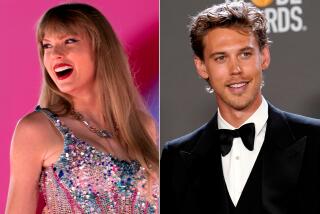Russian Science Group Excludes Jews, Minorities
- Share via
MOSCOW — In the largest election of new members to the august Russian Academy of Science in many years, government officials, Jews and members of ethnic minorities were largely excluded, according to results made public Friday amid cries of “scandal” and “shame” from intellectuals here.
Twenty-four of the 123 candidates nominated by the academy’s specialized sections for vacancies were rejected in what some members described as an unprecedented effort to ensure ethnic homogeneity and to blackball those scientists who had served as senior government or Communist Party officials.
“Although election requires a two-thirds vote by members of the academy, rejection of a nomination is very, very rare,” said Vitaly I. Goldansky, director of one of the academy’s most prestigious institutes.
“That so many were voted down, almost methodically, as Jews, as former Communist Party officials, as this minority or that is deeply worrying, but it is a mirror of the prejudice, notably anti-Semitism, and the bitter divisions growing within our society today,” Goldansky said.
All four candidates proposed for election by the nuclear physics section were rejected--three were Jews, and the fourth was the new minister of atomic energy, who had been the head of the Soviet nuclear weapons program.
A few Jewish scientists did win election, according to the results, but by the narrowest of margins: A Jewish chemist was elected with 207 votes against the 203 required, a biologist with 212, a physicist with 205.
The pattern held through the natural sciences from oceanography to engineering to cybernetics, with a Jewish middle name being enough to provoke negative votes.
In the social sciences, candidates were opposed almost across the board, apparently because of what one observer called the “value-laden character” of their work and their previous roles as advisers to the government and Communist Party.
Election was made more difficult because only 304 of the academy’s 350 or so members took part and only 260 of those actually voted--but nominees were required to get the votes of at least two-thirds of the official participants to be elected. The next regular election is not expected for two years.
With traditions of excellence, independence and privilege going back to its founding in 1724, the academy is the spiritual home of the Russian intelligentsia as well as a world-class research foundation with 300-plus institutes, 66,000 research fellows and a budget of perhaps $2.5 billion.
Yuri S. Osipov, the current academy president, responded to the results with a warning to academy members that such evident bias would probably bless the sharpening extremism in Russia, hasten the brain drain among the country’s scientists and divide the country’s intellectuals.
“I was staggered by the results--I didn’t realize that anti-Semitism ran so deep or reached so high,” said a corresponding member of the academy, who, as such, does not have a vote. “But there was broader chauvinism at work, too--almost as if our intelligentsia was unwilling to recognize any ‘lesser peoples.’ ”
Georgians, although working in Russian scientific institutes, were largely voted down despite strong endorsements from academy members in their specialties. Several Tatars, Bashkirs and other scientists from Muslim minorities were elected by the thinnest of margins, although their posts as institute directors would normally mean automatic inclusion.
In the social sciences, academy members voted against the membership of virtually every candidate, except those in the fields of literature, linguistics and history. They barred Andrei Kokoshin, an internationally respected arms-control specialist and Russia’s new deputy defense minister; Vladlen Martynov, director of the country’s leading international affairs think tank, and Sergei Alexeyev, former chairman of the Soviet Constitutional Court.
The campaign barred such former government officials as Gennady Yagodin, a former education minister who had been nominated by the section on inorganic chemistry, and even the son of a previous education minister.
“Look, our social scientists as a group have failed the country--just look at our economy, our political disarray, our foreign policy failures--and so why should any of them be honored?” a computer engineer, himself a corresponding member of the academy, commented Friday. “Besides, how do international politics become a science?”
Another scientist who was also present at the three-day session of the academy but, as a corresponding member, did not vote observed that most of the rejections were concentrated in areas, including nuclear power, where the country had suffered serious setbacks.
“To me, it was a question of responsibility,” he said. “Who takes responsibility for Chernobyl? Should not our nuclear physicists?”
But Goldansky and many other senior members of the academy read the results as a reflection of growing Russian nationalism, anti-Semitism and political intolerance.
More to Read
Sign up for Essential California
The most important California stories and recommendations in your inbox every morning.
You may occasionally receive promotional content from the Los Angeles Times.













